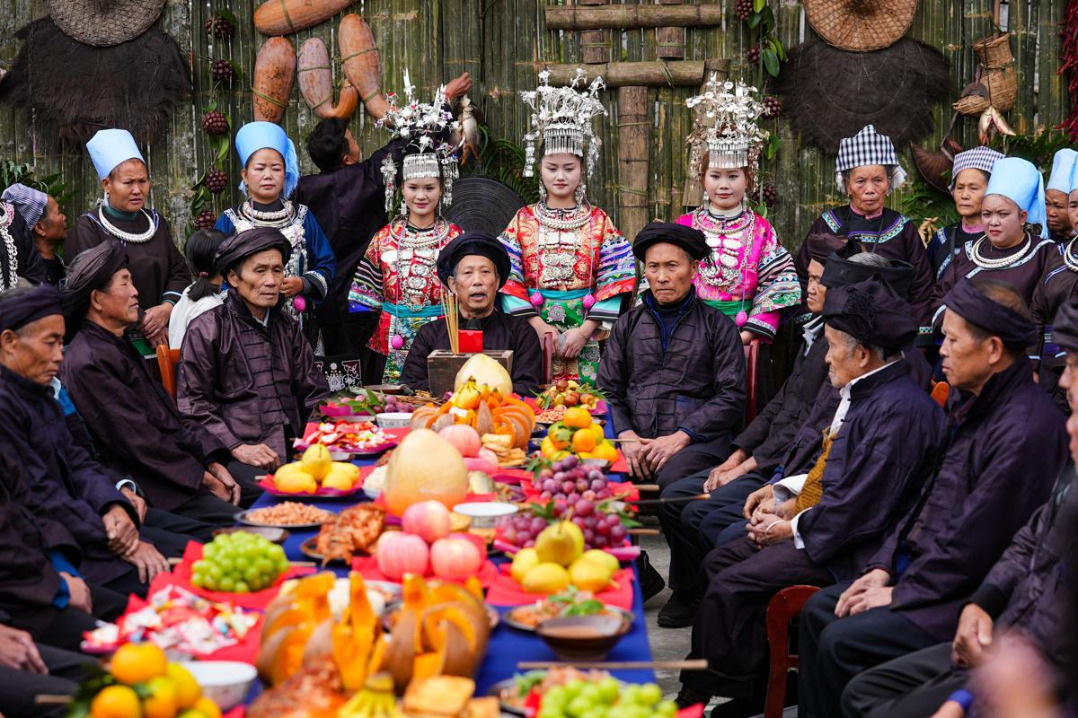Cities hyped online draw travelers during Tomb Sweeping Day holiday

Travel destinations that have gained popularity on social media platforms attracted tourists over the three-day Tomb Sweeping Day holiday, which started on Thursday.
The latest city to generate a buzz online is Tianshui, in Gansu province, which is famous for its malatang — a soup containing boiled meat and vegetables seasoned with mouthwatering, spicy scarlet chili oil. The city received 946,500 visitors during the holiday, with tourism revenue topping 540 million yuan ($75 million).
The hashtag "There were literally 100 million people in Tianshui" topped the trending topics on short video platform Douyin, the Chinese version of TikTok, on Saturday.
As of 5 pm Saturday, posts about traveling around Tianshui and its malatang received 22.7 billion views.
According to the Qunar travel portal, the number of searches for Tianshui made since Feb 26 was up 20 times year-on-year. Hotel bookings in the city were up twelvefold compared to the same holiday last year.
To cope with the frenzy, local authorities took measures to offer more parking spaces for travelers. They also conducted inspections at famous travel sites in the city and offered free accommodations to some travelers.
In Zibo, Shandong province, which became popular for its barbecue last year, enthusiasm among tourists resurfaced during the three-day holiday.
At Badaju, a popular local market, the number of daily visitors topped 100,000 during the holiday period, up from around 80,000 on a regular weekend.
Zheng Haolin, who works at the market's management office, told Xinhua News Agency that they have established a hotline to handle complaints from people visiting the market.
Local authorities also arranged for volunteers to offer guidance to travelers and to help them take pictures.
Fang Xin, who owns a barbecue shop in Zibo, said his shop was extremely busy during the holiday, and it had prepared food based on the tastes of travelers from other places.
The shop also recommended attractions to customers, and when the queues grew too long, its workers would even suggest other barbecue shops hungry visitors could try, he said.
Apart from eating barbecue, travelers also wanted to learn about the history and customs of Zibo, he said.
Wang Yan, who traveled from Qinhuangdao, Hebei province, to Zibo, said she thought that there might be fewer people there as it was not peak travel season. Instead, she was caught off guard by the large number of visitors.
Deng Ning, vice-dean of Beijing International Studies University's School of Tourism Sciences, said both Zibo and Tianshui became popular because of the photos and videos posted online featuring their food.
However, for them to stay popular in the long term, local authorities should offer quality tourism services in terms of transportation, accommodation and recreational activities, Deng said.
They should also create more attractions for travelers to give them other things to enjoy besides the food, he said.
They also need to continue generating new hot topics online so they can remain popular among travelers, as their online fame could fade quickly, he added.
- Shenzhou XXI astronauts enter space station
- China's Shenzhou XXI crewed spaceship docks with space station combination
- Annual report on rule of law in China released
- Launch of Shenzhou XXI crewed spaceship a complete success: official
- Humanoid robot to carry torch in Shenzhen relay
- Guangdong, Hong Kong, Macao volunteers join for 15th National Games




































